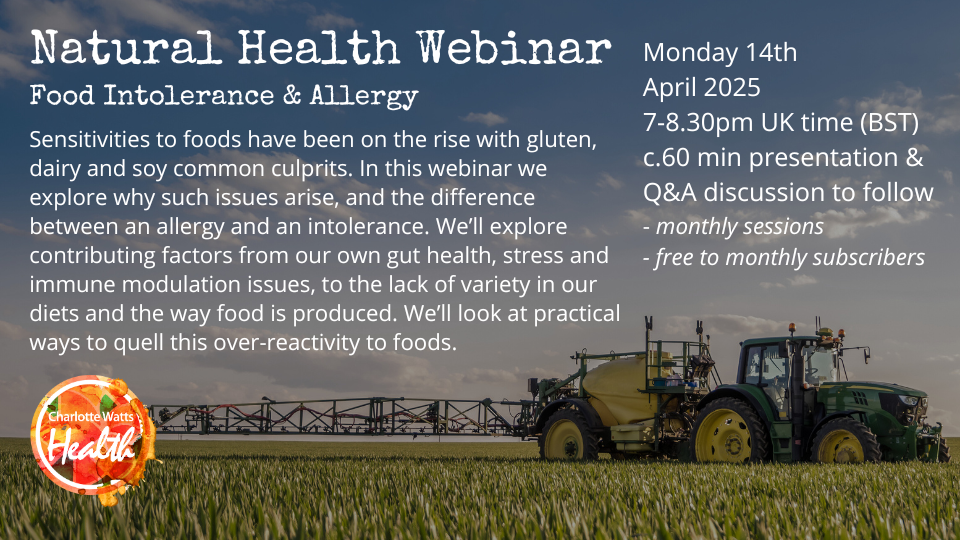Why Do We Crave Foods That Don't Suit Us?
Apr 04, 2025
The podcast above supports the following information:
Seeking Comfort Over Health
 Have you ever found yourself reaching for foods that you know don’t make you feel great? It’s a common pattern, whether it’s sugar, caffeine, or processed snacks, many of us crave things that don’t necessarily support our health. One of the main reasons we gravitate toward these foods is not because of their nutritional value, but because they provide instant comfort. In moments of stress, fatigue, or emotional discomfort, we often use food as a quick fix, a form of self-medication. This is a well-established pattern in human behaviour, particularly in addictive tendencies. Dr. Gabor Maté, a leading expert in trauma and addiction, explores this in books like When the Body Says No and In the Realm of Hungry Ghosts. He explains how many of our cravings stem from deeper emotional and psychological needs that remain unmet.
Have you ever found yourself reaching for foods that you know don’t make you feel great? It’s a common pattern, whether it’s sugar, caffeine, or processed snacks, many of us crave things that don’t necessarily support our health. One of the main reasons we gravitate toward these foods is not because of their nutritional value, but because they provide instant comfort. In moments of stress, fatigue, or emotional discomfort, we often use food as a quick fix, a form of self-medication. This is a well-established pattern in human behaviour, particularly in addictive tendencies. Dr. Gabor Maté, a leading expert in trauma and addiction, explores this in books like When the Body Says No and In the Realm of Hungry Ghosts. He explains how many of our cravings stem from deeper emotional and psychological needs that remain unmet.
The Cycle of Normalisation
 Our bodies and minds adapt to patterns, even when those patterns aren’t beneficial. Take caffeine, for example: many people rely on it to feel “normal” in the morning. Over time, this dependency means that without caffeine, they feel out of balance. The same happens with sugar and processed foods. If we regularly consume them, our brain chemistry adjusts, reinforcing the cycle. Removing these foods can initially feel uncomfortable because our bodies need time to recalibrate.
Our bodies and minds adapt to patterns, even when those patterns aren’t beneficial. Take caffeine, for example: many people rely on it to feel “normal” in the morning. Over time, this dependency means that without caffeine, they feel out of balance. The same happens with sugar and processed foods. If we regularly consume them, our brain chemistry adjusts, reinforcing the cycle. Removing these foods can initially feel uncomfortable because our bodies need time to recalibrate.
This is not information to use to give ourselves a hard time, but rather to increase our awareness and relate to our drivers, cravings and behaviours in ways that aren't simply ruled by them, but allowing choice and change where we need. A coffee in the morning can be a really pleasant thing, the question is does it overstimulate your system and you may be better switching to tea, or weaning off?
 The Dopamine Effect
The Dopamine Effect
There’s also a biochemical aspect to food cravings. Certain foods trigger a release of dopamine, the neurotransmitter responsible for pleasure and reward. Even if a food doesn’t suit our body, we might still crave it because of the short-term “high” it provides. Over time, this can desensitise our natural ability to self-regulate emotions and stress, much like alcohol or other addictive substances.
Sugar, sweeteners and processed foods are high on the list here - hence we can easily get into patterns of using them to normalise when we feel anxious, stressed, tired or agitated. This is our biochemistry at work; our need to self-soothe in times of struggle is more powerful than any intention or willpower at that moment in time. This is a strong reminder to be kind to ourselves - guilt, shame and self-criticism provide the very inner stress that perpetuates these cycles.
"We love salt, fat and sugar. We're hard-wired to go for those flavours. They trip our dopamine networks, which are our craving networks." - Michael Pollan
Breaking the Cycle
To move away from these patterns, we need to support our bodies rather than rely solely on willpower. Sudden elimination of certain foods can cause withdrawal-like effects, impacting serotonin levels and making emotional regulation more difficult. Instead, a gradual approach - introducing a wider variety of whole foods - allows the body to find balance naturally without harsh interference. Understanding what is at play and turning to savoury snacks and eating the quality protein and healthy fats we need to feel satiated can help intercept the pull towards quick-fix food to compensate that nourishment we are not receiving.
By understanding why we crave certain foods, we can start making choices that support our well-being, rather than simply reacting to short-term impulses. True nourishment comes not just from what we eat, but from how we care for ourselves as a whole, including the need for rest and recovery in our lives that dampens down the stress responses that set up and keep us in craving loops.
For lots of info about nutritional and stress support, discover Whole Health with Charlotte here, featuring access to natural health webinars, supplement discounts, yoga classes, meditations, and more...
You can learn more craving related to food intolerance in the webinar about Food Intolerance & Allergy within the Whole Health membership:





